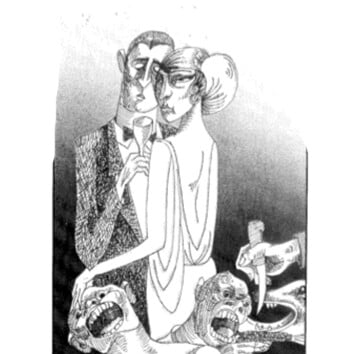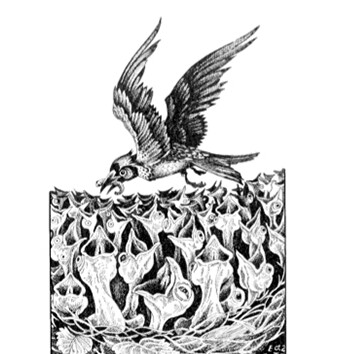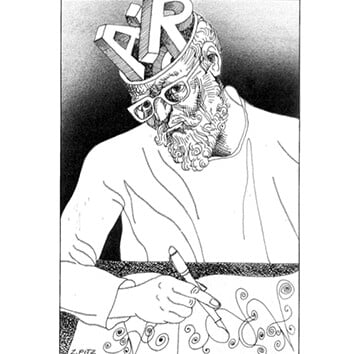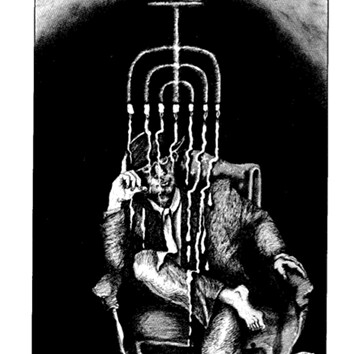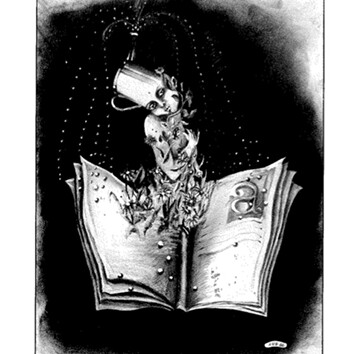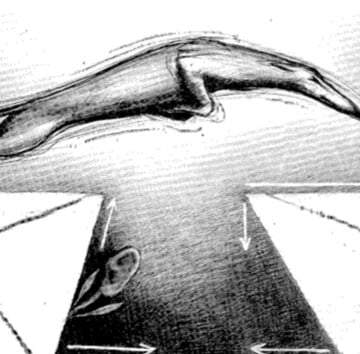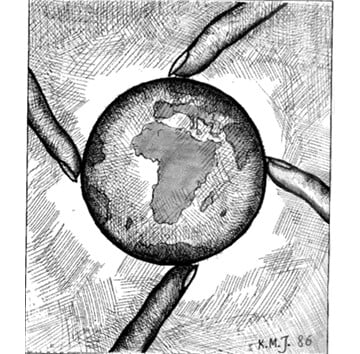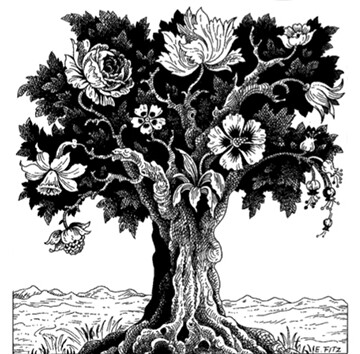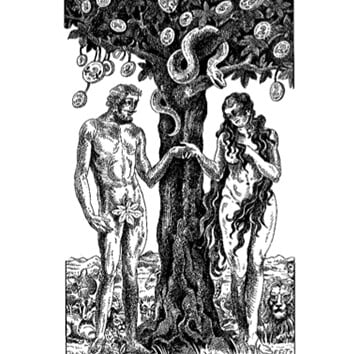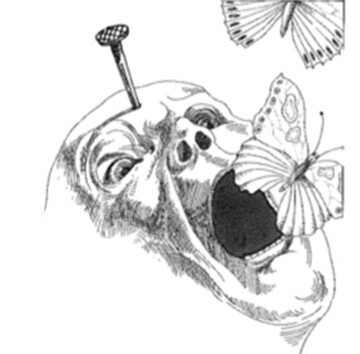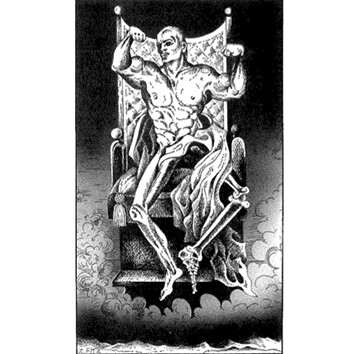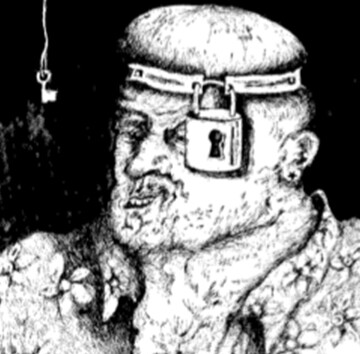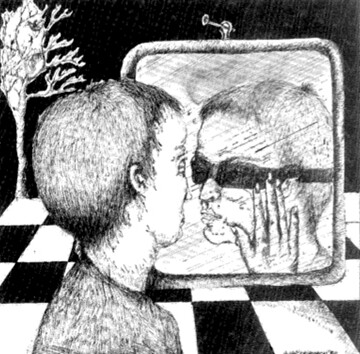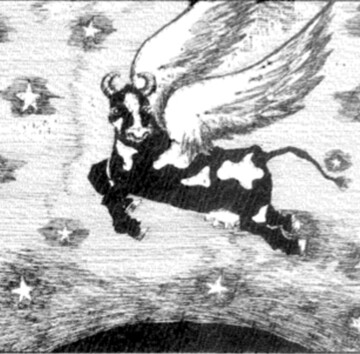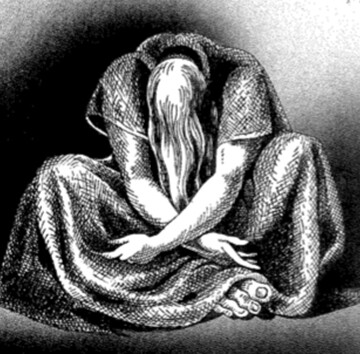As essayists go, John McPhee has be come something of a celebrity. He has been praised in places as diverse as National Review and National Public Radio; he has written 18 books and no telling how many articles; moreover, he is said to be the best thing The New Yorker, in its decrepitude, has going...
Category: Reviews
Wild Parlor Games
“There are bad people who would be less dangerous if they had no good in them.” —La Rochefoucauld From the beginning of his literary career, Robert Coover has been driven by the quite commendable ambition to make radical innovations in the forms and styles of contemporary fiction. Like John Barth, who once famously proclaimed the...
Postrevolution Blues
The situation is familiar to any student of socialist revolutions: The revolution is over, and the political apparatus has become authoritarian and alienated from its popular base. The lives of real people become less important than the economic programs and ideological causes of a growing bureaucracy. Then come suspicion, repression, overzealous police vigilance, persecution of...
Russia by Numbers
USSR Facts & Figures Annual is an excellent source of current statistical and factual information on the Soviet Union. Since 1977, Academic International Press has published an annual volume for anyone who needs to keep up to date on developments in the Soviet Union. The updated as well as new information covers such topics as...
Voice From the Brier Patch
“One night,” said Uncle Remus—taking Miss Sally’s little boy on his knee, and stroking the child’s hair thoughtfully and caressingly—”one night Brer Possum call by fer Brer Coon, cordin ter greement, an atter gobblin up a dish er fried greens en smokin’ a seegyar, dey rambled fort fer ter see how de balance er de settlement...
Pulling the Plugs
“Culture looks beyond machinery.” —Matthew Arnold A generation ago, the strongest voice raised against materialism, scientism, and the depredations of technology and mass communication was that of rhetorician and second generation agrarian Richard Weaver. In books like Ideas Have Consequences and Visions of Order, Weaver combines a disdain for technological culture in general with grave...
Unconstitutional
“Can the liberties of a nation be thought secure, when we have removed their only firm basis, a conviction in the minds of the people that these liberties are the gift of God?” —Thomas Jefferson Not long ago Time magazine celebrated America with a special issue. Among the ornaments of this production was an essay...
More Than Funny Pictures
Collections of previously published cartoons are usually greeted among “serious” readers by a dignified silence signifying anything from contempt to indifference. These may be the same cartoons which those same cognoscenti pore over and roar over in The New Yorker. “The Men Will Fear You, and the Women Will Adore You” by cartoonist William Hamilton...
Misprints and Misprision
“The sin against the spirit of a work always begins with a sin against the letter.” —Igor Stravinsky “When I hear the word ‘theory,’ I loosen the safety latch on my revolver,” remarked one disgruntled language teacher recently. He had an excuse, after all. He had just listened to an hour-long exposition of a Lacanian...
Off Center On Target
“I should have availed myself of waggery, had not malice been multitudinous.” —Christopher Smart The English are known for their love of the eccentric. Batty dons, hapless clerics, Colonel Blimps, imperious aunts, and addled aristocrats are scattered over the landscape of the English popular imagination. In a society where a high value is placed on...
Amazing Grace
In the New College at Edinburgh in 1934, young divinity students stimulated themselves by turning over old and new ideas: Calvinism, Barthianism, the role of the body of Christ in the world, the form of the liturgy, the purpose of missions—in other words, the same issues that, mutatis mutandis, have sparked theological discussions since the...
Decent Folk From Georgia
“Livin’ is like pourin’ water out of a tumbler into a dang Coca-Cola bottle. If’n you skeered you cain’t do it, you cain’t. If’n you say to yoreself, ‘By dang, I can do it!’ then, by dang, you won’t slosh a drop.” This sample of dialogue conveys something of the tone, language, and philosophy of...
Barroom Psychiatry
Psychotherapy is big business. America employs perhaps a half million professionals and paraprofessionals (psycho therapists, psychiatric technicians, drug/alcohol counselors, clinical social workers, clinical psychologists, psychiatrists and psychiatric nurses, family therapists) in the field, and the talk therapy industry as a whole is worth about $17 billion. Yet many scholars and laymen are uneasy at the...
When He Was Good
“A man who writes a book, thinks himself wiser or wittier than the rest of mankind; he supposes that he can instruct or amuse them, and the public to whom he appeals must, after all, be the fudges of his pretensions.” —Samuel Johnson Philip Roth’s first book, a collection of stories called Goodbye Columbus, was...
Sorcery in the Kremlin
Some novels tell a story that causes us to see reality in a new way. Other novels are manufactured around a message. The Set-Up is of this second type. Volkoff wants to teach us that the Soviets plan long term, that they are clever at masking their intentions, and that they have committed their re...
Still, Sad Music
“A poet in our times is a semi- barbarian in a civilized community.” —Thomas Love Peacock Something happened. The juice went out of it, the largest joy. There may arise figures analogous to Emily Dickinson, or even to John Clare, but no experienced lover of poetry expects a new Keats or a new Shelley or...
Remembering Roswitha
Do you remember Hrotsvit (Roswitha) of Gandersheim, mentioned in the survey of world literature that you took as an undergraduate? “The first female German poet, the first dramatist of Germany, the first person in Germany to employ the Faust theme, etc.”—but who cared? Because Hrotsvit, the canoness of the Imperial Abbey of Gandersheim, wrote her...
Epigones of the Lost Generation
Near the end of this fine book, John Aldridge observes: “The history of the period from 1890, roughly, to 1940 might . . . have been the history of the disappearance of the novel as an art form in society. . . . Yet there has seldom if ever been a time when more novels...
Germania Tremens
“What wonders I have done, all Germany can witness. . . . “ —Christopher Marlowe Anyone who has lived in Germany eventually realizes that Germany is a nation of hypochondriacs. Germans spend far more than Americans on nostrums, vitamins, tranquilizers, and elixers; Americans may watch “Dynasty,” but the most popular TV show in the Federal...
Letters From Tocqueville
“I am rich in letters. . . . “ —Horace Walpole Alexis de Tocqueville was an immensely prolific writer. His friend Gustave de Beaumont wrote that “for one volume he published he wrote ten; and the notes he cast aside as intended only for himself would have served many writers as text for the printer.”...
Telling Stories Out of School
It was E.G. Wodehouse, I think, who once told an anxious would-be writer of fiction that literary success was the result of careful adherence to a few very simple rules. Find a desk, Wodehouse suggested, and stock its drawers with sharp pencils and plenty of paper. Pull up a chair. Then, “Put your bum on...
Journalists and Other Turncoats
America’s journalists enjoyed their finest hour during Vietnam—indulging in reporting that overwhelmed all objective presentation of American military action. A recent book about Robert Garwood by two former reporters for the Washington Star suggests that our newspapermen are not done yet. Marine Private First Class Robert Garwood, captured by the Vietcong in 1963 and released...
Going Back to Charleston
The United States were once precisely that, a union of unique and independent states—each making its own literary and intellectual contribution to the national experience. Of these states, none was so peculiar as South Carolina, and for much of its intellectual history, South Carolina was Charleston. In the generation before The War, Charleston was in...
The Mafioso
According to some theorists, most of America’s woes began with the arrival of big government in 1932. Before that time, so the story goes, liberty was the rule, the work ethic was alive and well, God was in the classroom, and all was well with the world. As with all ideologies, this one presents an...
Rendering Unto Caesar
“Parnell came down the road, he said to a cheering man: ‘Ireland shall get her beedom and you shall break stone.'” —W. Yeats That some Protestant theologians meshed Christianity with Nazism and became ardent supporters of Hider should surprise no one familiar with the activities of theologians who support a Marxist-Leninism dedicated to destruction of...
The War Against the West
“Better fifty years of Europe than a cycle of Cathay.” —Tennyson In our day the mere mention of imperialism is enough to provoke paroxysms of moral outrage. Except in derision, no one any longer dares to speak of the white man’s burden, and few possess the courage to say that it was Europeans who created...
The Celts of the West
The ancient story of early Scotland will not be fully told until much more study has been completed, The face of the land literally is pockmarked with the remains of settlements and dwellings—many unexcavated—raised in an age so remote from our own, we scarcely know the names of the races that inhabited them. Riddles there...
Faith and Empathy
“Well, I do believe some things, of course . . . and therefore, of course, I don’t believe other things.” —G.K. Chesterton, The Incredulity of Father Brown The progressive turning away from belief in God that characterized Western intellectuals during the 19th century continues, alas, in the 20th. This intellectual shift has often been attributed...
Lame Hands of Socialist Faith
“You . . . have been borrowing goblins from the capitalist. . . . “ —John Ruskin For numerous well-known Western intellectuals, capitalism versus socialism remains the great dilemma, the principal philosophical and institutional alternative of our times. It is far from self-evident why this should be the case. Why not political pluralism as opposed...
Pleasant Words & Ugly Books
“Then shall I dare these real ills to hide In tinsel trappings of poetic pride?” —George Crabbe English must be kept up. It rarely is. But what a splendid collection of offenses against it is in D.J. Enright’s book of euphemism. Those who delight in the instructions for Japanese small appliances will here encounter the...
Not a Prayer
“(Portentous sight!) the owlet Atheism, Sailing on obscene wings athwart the noon . . . “ —Samuel Taylor Coleridge Individualism is the question of first concern to the future of the West. The dread argument of the individual case is, I think, the fundamental idea of modernism. Books like those by Turner and Bellah &...
Nailing Mailer
In 1979 Norman Mailer won the Pulitzer Prize and earned a small fortune with his sympathetic portrayal of murderer Gary Gilmore. Entitled The Executioner’s Song, Mailer’s book devoted 1,050 pages to the last days of the two-time murderer, and only 18 pages to the victims. A year later, 22-year-old Eric Kaminsky, a promising young musician,...
Ez and Old VORT
Among Wyndham Lewis’ nearly 50 books are found such classics as Time and Western Man (1927) and the novels Tarr (1918), The Apes of God (1930), and The Revenge For Love (1937). But at the time of his death in 1957, Lewis was probably better known for his persona than for his writings or the...
Us and Them
American diplomats, foreign policy experts, and politicians desperately want to believe that the Soviet leaders are essentially like us and that, fundamentally, they want the same things as we do. The Soviets encourage this kind of thinking with their proposals for disarmament, trade, and detente, and with their laments over the madness of the current...
Madman in the Dock
When John Hinckley was acquitted in 1982 for his attempted assassination of the President, the verdict galvanized opposition to the insanity defense. Some lawmakers wanted to restrict the use of the defense or even abolish it altogether. In Crime and Madness Thomas Maeder places the insanity defense and the recent challenges to it in historical...
Bashing the Baptists
“Who are these people?” someone asks about evangelicals in the early pages of Redemptorama, a book billed as an exploration of Christ and contemporary culture. Despite years of research and her own Southern Baptist upbringing, the author, Carol Flake, offers only caricatures in response to the question. The book is supposed to help sophisticates bewildered...
Hillbillies and Rednecks
“Taake my word for it, Sammy, the poor in a loomp is bad.” —Tennyson Two professors at Mississippi State University, a sociologist and a communicationist, have decoupaged their observations, experiences, and intrapsychic projections into a “phenomenological analysis” of The Southern Redneck. If their work has any redeeming social value, it is as a kind of...
The Maze of Metaphor
Jacques Derrida has in recent years made himself one of the most influential figures in literary criticism on American college campuses. The movement he has inspired, alternately known as “deconstruction” or “poststructuralism,” asserts that all language is metaphorical and that there is nothing outside the literary text. Following Derrida’s lead, Joseph G. Kronick challenges the...
Redeemer Novel
Some years ago Ernest Tuveson argued in his landmark study Redeemer Nation that our country’s Puritan background has led it through a series of historical crusades—from Indian wars to Vietnam—to bring righteousness to a corrupt world. It’s an interesting idea, disturbing and perhaps perverse, that deserves more attention than it has gotten. Tuveson’s study leads...
Haunted by Yesterday
“In literature, it is the hereditary spirit that still prevails.” —George Santayana Nothing is more dangerous for the critic than taking a book cover at face value. But when the blurbs compare the author to William Faulkner, Flannery O’Connor, Walker Percy, and Saul Bellow, the challenge is irresistible. And since these are the claims with...
Flightless Bird
Many see in Kurt Vonnegut a menace to society. Since the late 1960’s, parents’ groups and school boards in several states have launched drives to keep Slaughterhouse Five and other Vonnegut novels out of libraries and off syllabi. Other observers regard Kurt Vonnegut as a writer of consistent intelligence and integrity—a titan of his age....
Disintering Détente
The Soviet Union has reached the peak of its military power by reducing its economy to a shambles. If it continues to lavish its resources on the military, the economy will further decline, eventually imperiling the military budget. If the Soviets shift investment to the civilian economy, less money will remain for guns. If the...
In the Land of Cotton
“The harvest is past, the summer is ended, and we are not saved.” —Jeremiah When we write of Southern rural life (as when we write of Southern speech, manners, history, or literature) we essay a phenomenon significantly different from that which would normally be suggested were the modifier “Southern” to be replaced by “American.” In...
Pastor to the Pariahs
Dramatic conversions happen. F.F. Bruce, the noted New Testament scholar, is not alone in insisting that no one can understand Paul of Tarsus without considering his experience on the road to Damascus. And whether you believe, as Christians do, that he there met the resurrected Christ or not, all admit that he was not the...
The Re-Possessed
“In the end I shall have to renounce optimism.” —Voltaire Among other, more profound things, Dostoevski’s anti-revolutionary novel, The Possessed, is a withering dissection of liberal intellectuals. In its pages, liberals parade as hostile and irresponsible critics of a society that affords most of them a life of comfort and status. They are the “fathers”...
California Monologue
Author of one previous history of the American West, Richard Batman has attempted in The Outer Coast to provide a history of foreigners in California from the founding of the first mission in 1769 until the attempted annexation of Monterey by a drunken American Navy captain in 1842, which, in Batman’s eyes, marked the end...
Shotgun Marriage
“The Shadowy Female absorbing The enormous Sciences . . . “ —William Blake Reproductive control and genetic manipulation have been making the headlines for years. One day new developments in birth control herald a freer, happier world for women. The next day, knowledge also gained from those very same developments foretell a future of horror...
Lady and the Vamp
“No womman of no clerk is praised.” —Chaucer An old-fashioned historian can be forgiven for feeling a touch of empathy for the bewildered Egyptians upon whom Yahweh emptied the vessels of wrath some 3,500 years ago. The Hebrews’ God plagued the Egyptians for a matter of days, but the stern Minerva who reigns over academe...
Pedantry and Progress
He wrote one of the most distinctive and original prose styles of his time, paralleling the techniques of his Yankee contemporary, Henry James, anticipating those of Pound and Eliot. But he used that style to write Greek grammars and commentaries on obscure Greek and Latin poets and page after page of “brief mentions,” mini-reviews, of...
An Untimely End
There used to be two Daniel P. Moynihans. One wrote interesting essays on the foibles and pitfalls of crafting public policy. While seldom mistaken for a rigorous social scientist, this Moynihan had a gift for translating the esoteric findings of the research sociologists into the vernacular. He saw through the pretentions of political hubris and...
